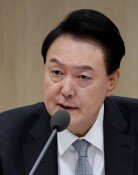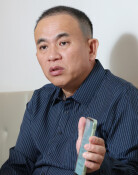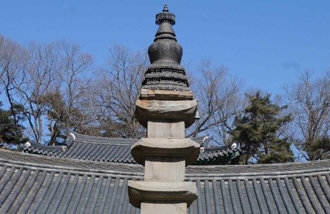[Editorial] Scientists Deserve a Heros Ovation
[Editorial] Scientists Deserve a Heros Ovation
Posted March. 06, 2008 03:05,
There is great news emerging from our nations scientific community.
Kang Hyeon-bae, a mathematical-science department professor at Seoul National University, solved the 57-year-old mathematical problems of Polya-Szego and Eshelby, in partnership with Graeme W. Milton, a professor of mathematics at the University of Utah.
Meanwhile, Kim Dong-ho, a chemistry professor at Yonsei University, and his team successfully synthesized Mobius strip-shaped molecules with professor Atsuhiro Osuka and his Kyoto University research team.
Korean scientists studying at the U.S. National Institutes of Health have also discovered a cause behind alcohol-related fatty liver.
These are truly inspiring achievements for Korea, which has been seen as lagging behind advanced nations in research. It is truly commendable that these accomplishments were possible in basic science fields where research conditions are relatively poor.
They didnt achieve these accomplishments accidentally. Though they received government assistance, the scientists devoted their lives to their research.
Prof. Kang said, Even when I watched TV, I thought of the mathematical problems.
Prof. Kim has published more than 200 SCI-level theses, and his work has been cited more than 3,500 times. He is one of the greatest scientists and is most likely to win a Nobel Prize.
This good news is suggestive for many Korean universities worrying about the reappointment of professors and the enhancement of tenure examination. Universities gain their competitiveness from professors, not from grandiose buildings.
World-renowned universities are doing all they can do to assess professors abilities and their achievements. Increasing the number of competent scholars will save universities as well as our economy.
The government plans to strengthen the utilization of the research year system. Many Korean professors considered it a year to relax, using that time play golf or boost their childrens English education rather than to focus on their research.
Those who can conduct research with foreign scholars should lead the efforts to strengthen the competitiveness of universities and research. The government also should spare no efforts to assist research programs that expand the foundations of basic science.
Headline News
- N. Korea conducts ICBM test ahead of U.S. presidential election
- Samsung Electronics to expand 5th Gen HBM Sales in Q4
- Gov’t flags possible tax evasion among pension exemption applicants
- Draft of U.S.-brokered 60-day truce between Israel and Hezbollah leaked
- Half of working seniors earn less than 1 million won per month







